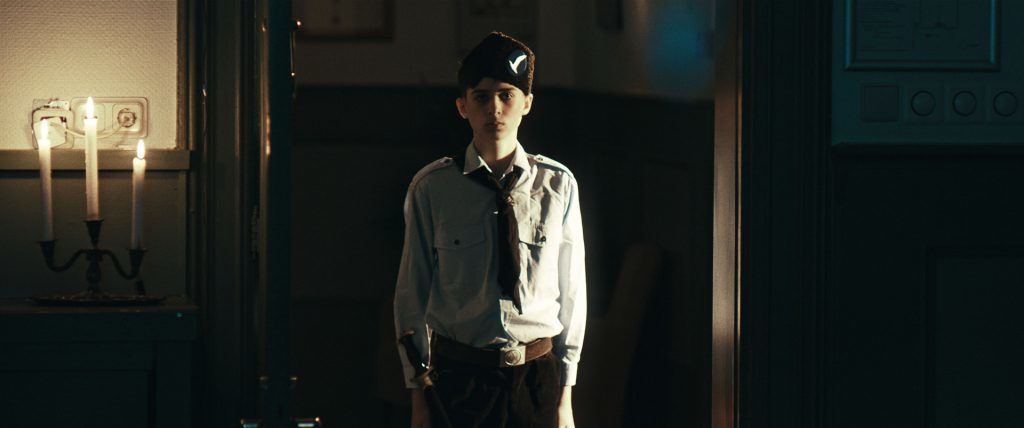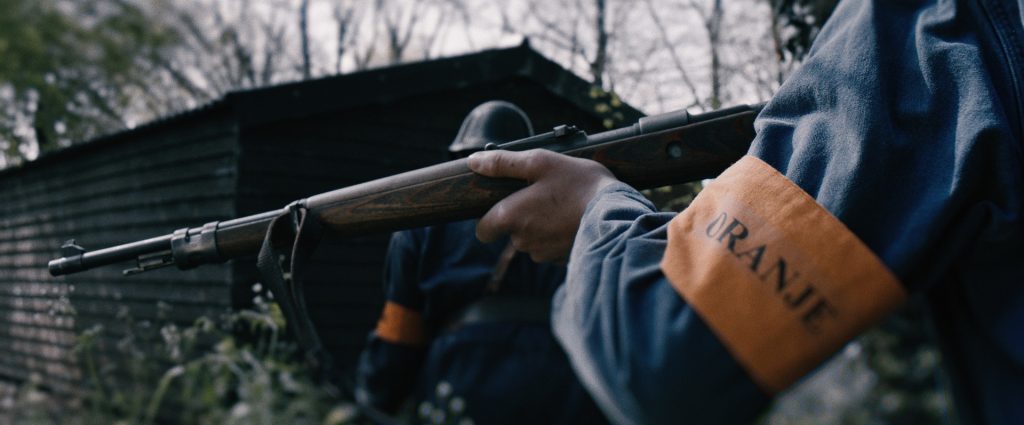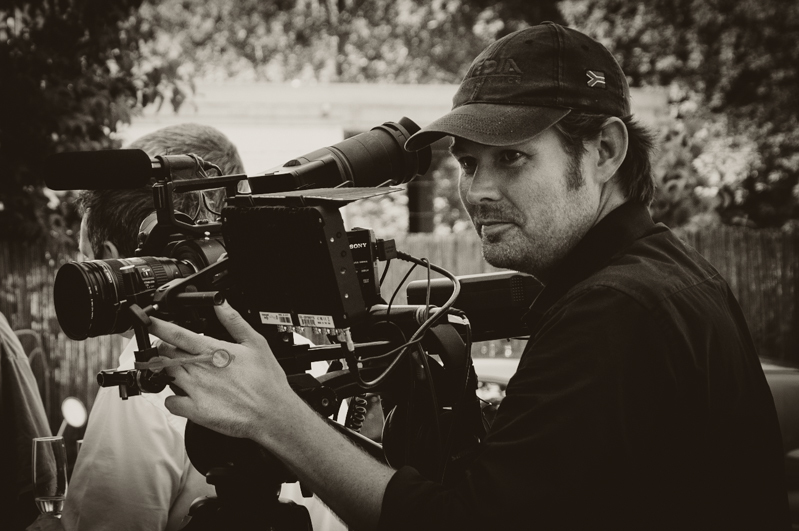
Case Study: Day of Reckoning
Gideon van Eeden talks about his short film.
Geplaatst op 12 maart 2018Gideon van Eeden received his bachelor degree from the esteemed film- and theatre Academy of South-Africa, the country where he was born. Currently, he’s getting his Master’s degree at the University of Staffordshire, as a screenwriter and filmdirector. He also works as a filmmaker of wild-life films and in the cultural sector.
His short film Day of Reckoning is part of the official competition of the Euregion Film Festival, and we spoke to him about his film.
How did the idea for this film come to you?
“After making the decision to create a short film as partial submission for my masters degree with the Raindance MA Programme, I set out to find a personal drama with a rites of passage story that contained a broad character arc. The academic goals quickly became a side project as we aimed to create a programmable high quality short film, which would become my debut as a director of narrative fiction. I read about 20 scripts from all over the world. After careful consideration we chose Day of Reckoning.”
What can you tell us about the script?
“Day of Reckoning is the brainchild of Peter Stead, an English screenwriter. He originally wrote the script in his native language, and as we were forced to shoot in the Netherlands, the idea had to be translated and reapplied to Dutch historical context. The fictionalised result has moved audiences around the globe.”
“The adaptation and translation went through various phases as I collaborated with Peter on the script. After that the actors also bring a fresh perspective. I think we had about 8 drafts before coming to a shooting script. In fact, the final edit on the script happens in the editing room, where the collaboration with Jesse van Koningsbruggen was very fruitful. Presiding over these essential processes is part and parcel of what the director does, and the greatest of privileges.”

How did you prepare for making this film?
“As director I wanted to lift my preparation, vision and shot list to a higher level without inhibiting my instincts. To prepare myself I consulted various books on directing and camera movement to gain inspiration. I combined various techniques to find a sweet spot with one goal in mind – every shot, every angle, every camera movement has one primary goal: to establish and reveal character. This is the most important thing to me. Showing off your abilities as a director is secondary to this sacred charge. My DOP, and co-producer, Raymond van der Bas shares this vision – a fact that powerfully inspires our continued collaboration.”
“As a director it is of utmost importance to be able to convey your vision to the cast and crew. The vision statement I wrote served well in this regard. This is the DNA and beating heart of what I believe the director should do. Just as a screenwriter would spend months on the logline, theme and character, the director distills his vision while constantly protecting it, while remaining open for collaboration. It is a delightful dichotomy. I like challenging the crew to achieve high standards. This motivates them. Having my DOP as co-producer was beneficial, because we could exchange ideas and debate decisions on the shot list at length. It was an intense but very fruitful process.”

What can you tell us about the actual pre-production?
“We funded the project entirely with our own resources. Being working filmmakers we both have large networks to tap into which filled all the positions in the cast and crew. Shooting locations and every other element of the production came from our own network. We were privileged to work with John Leddy, the oldest working actor in the Netherlands. He is an absolute trooper on set, and having him on board, together with the fact that we had our world Premiere at Raindance in London, gave us the opportunity to feature in the national press. The only other Dutch short film at the time that could achieve that was nominated for an Oscar.”
And what about during the production itself?
“Production was extreme. We went over schedule significantly but we were able to avoid a mutiny as the results on the monitor were serving as a powerful motivation to everyone on set. It was very stressful and several sacrifices were made, but this is where you need to think on your feet as a director. This is the director’s drug, and I am totally hooked.”

Was the editing process equally demanding? Did you have to re-edit a lot?
“We never made drastic re-edits, as the plan remained reasonably intact throughout the process. That does not mean that I did not spend many hours with editor Jesse van Koningsbruggen, because we wanted to make every cut on every frame a thoroughly considered decision. After the edit was locked, we handed it over to the virtuosity of our colourist, Jelle Helwig, who really enhanced the character development.”
How did you handle the music?
“Ruud Hermans composed this touching score brilliantly and followed the vision with excellence. I briefed him that we are looking for something like Saving Private Ryan, but with a sense that the heroic undertone feels incomplete or unresolved. We also purchased a well known musical track, which was cost a lot of time and money – will try to avoid that on the nest production.”
What did you do for your festival distribution?
“As true independents we distributed the film ourselves. We have screened at numerous festivals all over the world gaining many nominations and awards. Highlights include the Raindance Film Festival, Berlin Independent Film Festival and Lift-Off. Personally I was very honoured to win the annual award for best director at the Goddess Nike Awards.”
Do you have any tips for directors?
“Choose a story that speaks to your soul. Follow your gut without assuming that you know everything – you don’t. Honour and celebrate your collaborators, because without them you are meaningless. Leave no stone unturned when it comes to preparation.”